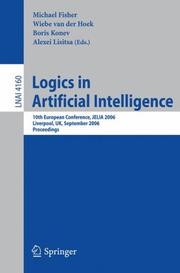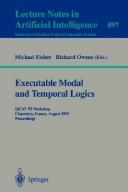| Listing 1 - 10 of 63 | << page >> |
Sort by
|
Book
ISBN: 9780199764341 9780199764334 Year: 2014 Publisher: Oxford Oxford university press
Abstract | Keywords | Export | Availability | Bookmark
 Loading...
Loading...Choose an application
- Reference Manager
- EndNote
- RefWorks (Direct export to RefWorks)
"Fisher explores the process of migration chronologically and at levels varying from the migration of an individual community, to larger patterns of the collective movements of major ethnic groups, to the more abstract study of emigration, migration, and immigration. By highlighting an exemplary migration for each of the six chapters, the volume considers how technology, environment, and politics have shaped the diverse history of human migration"--
Emigration and immigration --- Migration, Internal --- Internal migration --- Mobility --- Population geography --- Internal migrants --- History

ISBN: 9783540396253 354039625X 3540396276 Year: 2006 Publisher: Berlin ; New York : Springer,
Abstract | Keywords | Export | Availability | Bookmark
 Loading...
Loading...Choose an application
- Reference Manager
- EndNote
- RefWorks (Direct export to RefWorks)
Artificial intelligence --- Logic, Symbolic and mathematical --- Intelligence artificielle --- Logique symbolique et mathématique --- Congresses. --- Congrès --- Computer Science --- Mechanical Engineering - General --- Engineering & Applied Sciences --- Mechanical Engineering --- 681.3*I2 --- 681.3*F41 --- 681.3*D16 --- Artificial intelligence. AI --- Mathematical logic: computability theory; computational logic; lambda calculus; logic programming; mechanical theorem proving; model theory; proof theory;recursive function theory--See also {681.3*F11}; {681.3*I22}; {681.3*I23} --- Programming techniques: Logic programming --- Information Technology --- Artificial Intelligence --- 681.3*F41 Mathematical logic: computability theory; computational logic; lambda calculus; logic programming; mechanical theorem proving; model theory; proof theory;recursive function theory--See also {681.3*F11}; {681.3*I22}; {681.3*I23} --- 681.3*I2 Artificial intelligence. AI --- Computer science. --- Computer programming. --- Mathematical logic. --- Artificial intelligence. --- Computer Science. --- Artificial Intelligence (incl. Robotics). --- Programming Techniques. --- Mathematical Logic and Formal Languages. --- AI (Artificial intelligence) --- Artificial thinking --- Electronic brains --- Intellectronics --- Intelligence, Artificial --- Intelligent machines --- Machine intelligence --- Thinking, Artificial --- Bionics --- Cognitive science --- Digital computer simulation --- Electronic data processing --- Logic machines --- Machine theory --- Self-organizing systems --- Simulation methods --- Fifth generation computers --- Neural computers --- Algebra of logic --- Logic, Universal --- Mathematical logic --- Symbolic and mathematical logic --- Symbolic logic --- Mathematics --- Algebra, Abstract --- Metamathematics --- Set theory --- Syllogism --- Computers --- Electronic computer programming --- Electronic digital computers --- Programming (Electronic computers) --- Coding theory --- Informatics --- Science --- Programming --- Artificial Intelligence. --- JELIA

ISBN: 3540589767 3540491686 9783540589761 Year: 1995 Volume: 897 Publisher: Berlin : Springer-Verlag,
Abstract | Keywords | Export | Availability | Bookmark
 Loading...
Loading...Choose an application
- Reference Manager
- EndNote
- RefWorks (Direct export to RefWorks)
This volume presents the thoroughly revised proceedings of the IJCAI '93 Workshop on Executable Modal and Temporal Logics held in Chambery, France in August 1993. The direct execution of logical statements, through languages such as PROLOG, has proved remarkably successful within CS and AI. In recent years a variety of nonclassical logics have been introduced and several executable forms of these logics have been applied to programming. This volume addresses a range of approaches to executable modal and temporal logics, not only from a logical point of view, but also from programming language and application standpoints; in addition, an introductory survey and an annotated bibliography are presented.
Logic programming --- Prolog (Computer program language) --- Congresses. --- Artificial intelligence. --- Logic, Symbolic and mathematical. --- Computer science. --- Artificial Intelligence. --- Mathematical Logic and Foundations. --- Programming Techniques. --- Mathematical Logic and Formal Languages. --- Informatics --- Science --- Algebra of logic --- Logic, Universal --- Mathematical logic --- Symbolic and mathematical logic --- Symbolic logic --- Mathematics --- Algebra, Abstract --- Metamathematics --- Set theory --- Syllogism --- AI (Artificial intelligence) --- Artificial thinking --- Electronic brains --- Intellectronics --- Intelligence, Artificial --- Intelligent machines --- Machine intelligence --- Thinking, Artificial --- Bionics --- Cognitive science --- Digital computer simulation --- Electronic data processing --- Logic machines --- Machine theory --- Self-organizing systems --- Simulation methods --- Fifth generation computers --- Neural computers --- Logic programming - Congresses --- Prolog (Computer program language) - Congresses.
Book
ISSN: 03029743 ISBN: 3642328962 3642328970 Year: 2012 Publisher: Berlin ; New York : Springer,
Abstract | Keywords | Export | Availability | Bookmark
 Loading...
Loading...Choose an application
- Reference Manager
- EndNote
- RefWorks (Direct export to RefWorks)
This book constitutes the proceedings of the 13th International Workshop on Computational Logic in Multi-Agent Systems, CLIMA XIII, held in Montpellier, France, in August 2012. The 11 regular papers were carefully reviewed and selected from 27 submissions and presented with three invited papers. The purpose of the CLIMA workshops is to provide a forum for discussing techniques, based on computational logic, for representing, programming and reasoning about agents and multi-agent systems in a formal way.
Multiagent systems --- Computational intelligence --- Mechanical Engineering --- Engineering & Applied Sciences --- Mechanical Engineering - General --- Computer Science --- Information Technology --- Artificial Intelligence --- Agent-based model (Computer software) --- MASs (Multiagent systems) --- Multi-agent systems --- Systems, Multiagent --- Computer science. --- Software engineering. --- Programming languages (Electronic computers). --- Computer logic. --- Mathematical logic. --- Artificial intelligence. --- Computer Science. --- Artificial Intelligence (incl. Robotics). --- Mathematical Logic and Formal Languages. --- Software Engineering. --- Programming Languages, Compilers, Interpreters. --- Logics and Meanings of Programs. --- Intelligent agents (Computer software) --- Logic design. --- Artificial Intelligence. --- Design, Logic --- Design of logic systems --- Digital electronics --- Electronic circuit design --- Logic circuits --- Machine theory --- Switching theory --- Computer software engineering --- Engineering --- Informatics --- Science --- AI (Artificial intelligence) --- Artificial thinking --- Electronic brains --- Intellectronics --- Intelligence, Artificial --- Intelligent machines --- Machine intelligence --- Thinking, Artificial --- Bionics --- Cognitive science --- Digital computer simulation --- Electronic data processing --- Logic machines --- Self-organizing systems --- Simulation methods --- Fifth generation computers --- Neural computers --- Computer science logic --- Logic, Symbolic and mathematical --- Computer languages --- Computer program languages --- Computer programming languages --- Machine language --- Languages, Artificial --- Algebra of logic --- Logic, Universal --- Mathematical logic --- Symbolic and mathematical logic --- Symbolic logic --- Mathematics --- Algebra, Abstract --- Metamathematics --- Set theory --- Syllogism
Book
ISBN: 1108679781 1108679811 131627604X 1107111625 1107529107 Year: 2018 Publisher: Cambridge : Cambridge University Press,
Abstract | Keywords | Export | Availability | Bookmark
 Loading...
Loading...Choose an application
- Reference Manager
- EndNote
- RefWorks (Direct export to RefWorks)
India, Pakistan, and Bangladesh contain one-fifth of humanity, are home to many biodiversity hotspots, and are among the nations most subject to climatic stresses. By surveying their environmental history, we can gain major insights into the causes and implications of the Indian subcontinent's current conditions. This accessible new survey begins roughly 100 million years ago, when continental drift moved India from the South Pole and across the Indian Ocean, forming the Himalayan Mountains and creating monsoons. Coverage continues to the twenty-first century, taking readers beyond independence from colonial rule. The new nations of India, Pakistan, and Bangladesh have produced rising populations and have stretched natural resources, even as they have become increasingly engaged with climate change. To understand the region's current and future pressing issues, Michael H. Fisher argues that we must engage with the long and complex history of interactions among its people, land, climate, flora, and fauna.
Human ecology --- Nature --- Ecology --- Environment, Human --- Human beings --- Human environment --- Ecological engineering --- Human geography --- History. --- Effect of human beings on --- Social aspects --- Effect of environment on --- India --- Bharat --- Bhārata --- Government of India --- Ḣindiston Respublikasi --- Inde --- Indië --- Indien --- Indii︠a︡ --- Indland --- Indo --- Republic of India --- Sāthāranarat ʻIndīa --- Yin-tu --- インド --- هند --- Индия --- Environmental conditions.
Book
ISBN: 9781316276044 9781107111622 9781107529106 Year: 2018 Publisher: Cambridge Cambridge University Press
Abstract | Keywords | Export | Availability | Bookmark
 Loading...
Loading...Choose an application
- Reference Manager
- EndNote
- RefWorks (Direct export to RefWorks)
"The relatively young but rapidly expanding field of formal environmental history informs us ever more about vital patterns of interactions among humans, other living beings, and the material world. Climate change, species extinction, unequally distributed and overstrained essential resources (including clean air, energy, food, land, and water), and other of today's pressing issues can only be understood and mitigated by understanding the many centuries of dynamic changes that caused them. The Indian subcontinent has a distinctively complex environmental history that makes it particularly vulnerable to current environmental stresses"--
Human ecology --- Nature --- History --- Effect of human beings on --- India --- Environmental conditions.
Book
ISBN: 9781108755023 9781108484992 Year: 2023 Publisher: Cambridge, United Kingdom ;New York, NY, USA Cambridge University Press
Abstract | Keywords | Export | Availability | Bookmark
 Loading...
Loading...Choose an application
- Reference Manager
- EndNote
- RefWorks (Direct export to RefWorks)
How can we provide guarantees of behaviours for autonomous systems such as driverless cars? This tutorial text, for professionals, researchers and graduate students, explains how autonomous systems, from intelligent robots to driverless cars, can be programmed in ways that make them amenable to formal verification. The authors review specific definitions, applications and the unique future potential of autonomous systems, along with their impact on safer decisions and ethical behaviour. Topics discussed include the use of rational cognitive agent programming from the Beliefs-Desires-Intentions paradigm to control autonomous systems and the role model-checking in verifying the properties of this decision-making component. Several case studies concerning both the verification of autonomous systems and extensions to the framework beyond the model-checking of agent decision-makers are included, along with complete tutorials for the use of the freely-available verifiable cognitive agent toolkit Gwendolen, written in Java.
Robust control. --- Automatic control. --- Machine learning. --- Computer programs --- Verification.

ISBN: 0195628608 Year: 1993 Publisher: Delhi : Oxford university press,
Abstract | Keywords | Export | Availability | Bookmark
 Loading...
Loading...Choose an application
- Reference Manager
- EndNote
- RefWorks (Direct export to RefWorks)
Book
ISBN: 9789888390977 9789888390960 Year: 2019 Publisher: Hong Kong Hong Kong University Press
Abstract | Keywords | Export | Availability | Bookmark
 Loading...
Loading...Choose an application
- Reference Manager
- EndNote
- RefWorks (Direct export to RefWorks)
Book
ISBN: 0199764344 0199351945 9780199351947 1299966721 9781299966727 Year: 2014 Publisher: Oxford ; New York : Oxford University Press,
Abstract | Keywords | Export | Availability | Bookmark
 Loading...
Loading...Choose an application
- Reference Manager
- EndNote
- RefWorks (Direct export to RefWorks)
Michael Fisher explores the process of migration chronologically and at levels varying from the migration of an individual community, to larger patterns of the collective movements of major ethnic groups, to the more abstract study of emigration, migration, and immigration.
Emigration and immigration --- Migration, Internal --- History.
| Listing 1 - 10 of 63 | << page >> |
Sort by
|

 Search
Search Feedback
Feedback About UniCat
About UniCat  Help
Help News
News